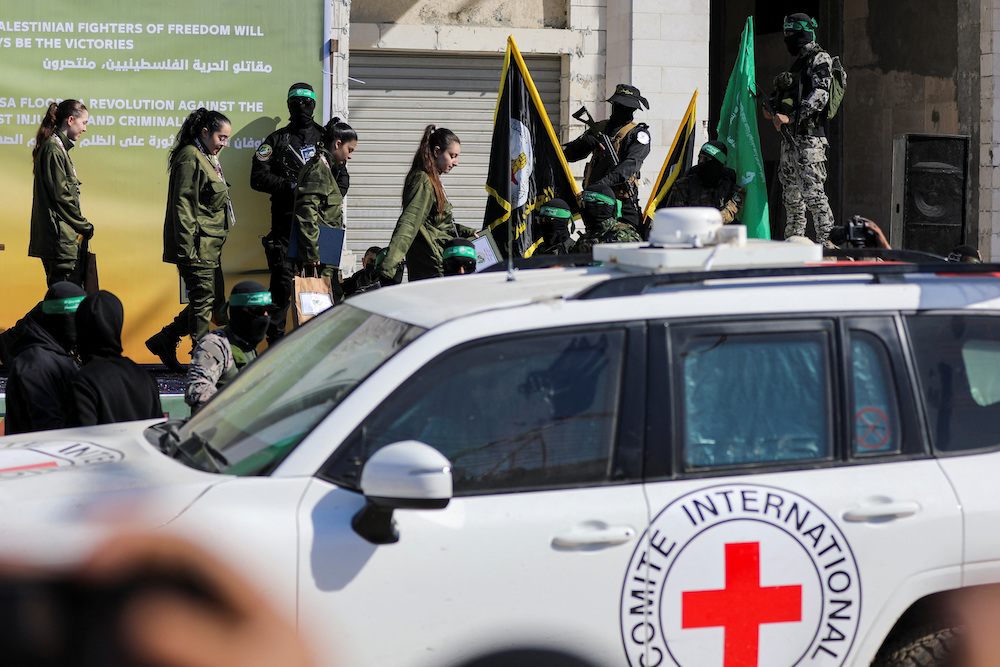NEW DELHI/MUMBAI: Nestle SA, battling a reputational crisis in India, pulled its Maggi instant noodles from stores across the country on Friday after regulators reported some packets contained excess lead.
After coming under fire for failing to react swiftly and decisively, Nestle bowed to pressure in the early hours of Friday and announced an India-wide recall.
In an effort to quell India’s most significant food scare in nearly a decade, the Swiss food giant fielded group CEO Paul Bulcke to calm consumers at a televised press conference.
Instead, he faced a rowdy gathering where he was frequently shouted down by Indian reporters.
Adding to Nestle’s troubles, India’s food safety regulator issued a statement just as that meeting ended, accusing the food giant of violating labelling and other rules in India.
It ordered a recall of the instant noodles it said were “unsafe and hazardous” for human consumption.
“We are a company that lives on the trust of our consumers,” Bulcke told a packed news conference in New Delhi, repeating that it had protectively recalled the noodles to ease the minds of “shaken” consumers, but that there was no safety concern.
Sales of Maggi in India represent roughly 0.005 percent of Nestle’s global revenue of almost 92 billion Swiss francs ($98.6 billion), but the brand damage could extend further, and Bulcke acknowledged the company had fallen short.
“If you have confusion there is something wrong with communications. That’s why we are sitting here,” he said.
Since inspectors in the northern state of Uttar Pradesh made their first report two weeks ago, at least six states, several major retailers and the Indian army have banned Maggi noodles.
On Thursday, Tamil Nadu became the first state to ban several instant noodle brands, including Nestle’s.
MAGGI POINTS
Maggi two-minute noodles, which sell for a dozen rupees ($0.20) per single-serving packet, are hugely popular in India.
The snack is frequently served to children and eaten at roadside shacks and “Maggi points” across the country.
With Bollywood superstars in its advertising campaigns, Maggi has been a market leader for three decades, though it now competes with rival brands like Hindustan Unilever Ltd’s Knorr and GlaxoSmithKline PLC’s Horlicks.
Analysts and industry advisers welcomed the recall but questioned the firm’s strategy of clashing with the regulator and denying the problem for weeks as headlines proliferated.
“If you ask me everything that Nestle has done is wrong,” said Arvind Singhal, chairman of retail consultancy Technopak.
“In this day and age of social media, you cannot question the government and consumers.”
Bulcke said publicly Nestle would not challenge the Indian food testing methods, but the regulator’s report indicated Nestle had contested elements including the fact condiments were tested separately to the noodles.
The regulator itself, though, when questioned on the matter by Reuters on Thursday, highlighted failings in a country where there is a chronic shortage of state laboratories for both food and drugs.
Despite poor public hygiene, to date India has not experienced food scares on the same scale as China. But analysts say increasingly affluent, health-conscious consumers and easy access to social media are likely to mean more incidents capture public attention, and global brands need to be better prepared.
Employees contacted by Reuters at several multinational food companies in India reported what one described as a “state of alert.”
“You have to understand multinationals are soft targets,” said one top executive.
“If they checked street food, who knows how much lead and other things are to be found?“
The noodle scare is India’s biggest involving packaged foods since 2006, when an environmental group raised questions over pesticide traces in Coca Cola Co. and PepsiCo. Inc. fizzy drinks.
Nestle pulls Maggi noodles off Indian shelves as food scare spreads
Nestle pulls Maggi noodles off Indian shelves as food scare spreads

‘Between Sacred Cities’: Pakistan’s Imran Qureshi unveils largest installation at Islamic Arts Biennale

- Installation reimagines historic route that stretched from Kufa in Iraq to holy city of Makkah
- Qureshi, a Pakistani visual artist, has featured artworks in local and international exhibitions
ISLAMABAD: Pakistani artist Imran Qureshi on Saturday unveiled “Between Sacred Cities,” the largest installation at the Islamic Arts Biennale 2025 in Jeddah, his art reimagining a historic route that once stretched from Kufa in Iraq to the holy city of Makkah.
The Islamic Arts Biennale 2025 provides a platform for new discourse about Islamic arts, featuring contemporary and newly commissioned artworks with historical objects from Islamic cultures. It offers artists a platform to explore themes of spirituality, identity, and the intersection of past and present. This year’s biennale will run from Jan. 25-May 25.
According to Lotus, a public relations agency, the installation is situated between the iconic Makkah and Madina pavilions at the Western Hajj Terminal.
“The installation reimagines a historic route that once stretched from Kufa, Iraq, to Makkah,” Lotus said.
“Designed to aid pilgrims on their Hajj journey, this route served as a network of resting stations and water sources, inspiring Qureshi’s interpretation of an oasis as a sanctuary of rest, reflection, and unity.”
The statement said that the concept of an oasis in the installation is transformed into an interactive and contemplative garden-like structure, central to which is an octagonal design.
“Drawing on the spiritual essence of the journey between Makkah and Madina, the installation incorporates the holy water of Zamzam and lush greenery reminiscent of Madina’s tranquillity,” it added.
Qureshi has used vibrant woven strips to symbolize flowing water while the surrounding greenery evokes a sense of life, Lotus said.
The installation has been commissioned by the Diriyah Biennale Foundation and curated by acclaimed artist Muhannad Shono.
“Between Sacred Cities will be on display from January 25, 2025, to May 25, 2025, offering visitors an unparalleled opportunity to explore the universal themes of travel, spirituality, and interconnectedness,” Lotus said.
Qureshi is a visual artist from Pakistan’s southern Sindh province. With a career spanning twenty-nine years, encompassing local and international exhibitions, he has emerged as a prominent Pakistani artist.
In 2013, he created a large-scale, site-specific work for The Metropolitan Museum of Art’s Roof Garden Commission in New York. The same year he was awarded the Deutsche Bank’s Artist of the Year and exhibited solo for the first time in Europe at the Deutsche Bank Kunsthalle in Berlin.
Qureshi’s work has since been shown in numerous solo exhibitions, including the Barbican Center, London (2016), Kunsten Museum of Modern Art, Aalborg, Denmark (2016), along with executing site-specific projects at the Washington National Cathedral, Washington, D.C. (2018) and Al Ain, Abu Dhabi, United Arab Emirates (2018), to name a few.
In 2021 he was awarded the Sitara-e-Imtiaz (Star of Excellence) by Pakistan’s government.
Hamas frees four Israeli hostages to Red Cross in Gaza

- Israel is to free 200 Palestinian prisoners in exchange for the hostages
- The hostage-prisoner exchange is part of a fragile ceasefire agreement between Israel and Hamas
GAZA CITY, Palestinian Territories: Hamas militants on Saturday handed over to the Red Cross four Israeli women hostages under a truce deal in the Gaza war that is also expected to see a second group of Palestinian prisoners freed.
An AFP journalist witnessed the handover after the four were presented on a stage at a main square in Gaza City, where dozens of masked, armed militants had gathered earlier.
The Israeli military later confirmed they have received the freed hostages.
Four Red Cross vehicles had arrived ahead of the handover.
The fighters from Hamas and Islamic Jihad, carrying assault rifles and rocket-propelled grenade launchers, gathered in rows, many carrying their groups’ banners and wearing green headbands, as crowds of Gaza residents gathered to watch.
Israel confirmed Friday that it had received a list of the hostages’ names.
On Saturday, Palestinian sources said Israel is to free 200 Palestinian prisoners in exchange for the hostages.

According to the Israeli Hostage and Missing Families Forum, a campaign group, the women released are Karina Ariev, Daniella Gilboa, Naama Levy — all aged 20 — and Liri Albag, 19.
They had been held captive for more than 15 months, since Hamas’s October 7, 2023 attack on Israel.
Palestinians displaced by the war to southern Gaza should be able to begin returning to the north following Saturday’s releases, Bassem Naim, a member of Hamas’s political bureau based in Qatar, told AFP on Friday.
The truce has also led to a surge of food, fuel, medical and other aid into rubble-strewn Gaza but Israel’s UN ambassador on Friday confirmed that the UN agency for Palestinian refugees, Gaza’s main aid agency, must end all operations in Israel by Thursday.
The hostage-prisoner exchange is part of a fragile ceasefire agreement between Israel and Hamas that took effect last Sunday, and which is intended to pave the way to a permanent end to the war.
Mediators Qatar and the United States announced the agreement days ahead of US President Donald Trump’s inauguration. Trump has since claimed credit for securing the deal after months of fruitless negotiations.
Abu Obeida, spokesman for the Ezzedine Al-Qassam Brigades, Hamas’s armed wing, said on Telegram Friday that “as part of the prisoners’ exchange deal, the Qassam brigades decided to release tomorrow four women soldiers.”
Israeli Prime Minister Benjamin Netanyahu’s office confirmed it had received the names through mediators.
According to Israel’s prison service, some of the Palestinians released will go to Gaza, with the rest returning to the Israeli-occupied West Bank.
The ceasefire agreement should be implemented in three phases, but the last two stages have not yet been finalized.
“The worry and fear that the deal will not be implemented to the end is eating away at all of us,” said Vicky Cohen, the mother of hostage Nimrod Cohen.

In Gaza, families displaced by more than a year of war longed to return home, but many will find only rubble where houses once stood.
“Even if we thought about returning, there is no place for us to put our tents because of the destruction,” Theqra Qasem, a displaced woman, said.
During the first, 42-day phase that began Sunday, 33 hostages Israel believes are still alive should be freed in staggered releases in exchange for around 1,900 Palestinians held in Israeli jails.
Three hostages — Emily Damari, Romi Gonen and Doron Steinbrecher — returned home on the first day of the truce.
Ninety Palestinians, mostly women and minors, were released in exchange.
The deal’s second phase is to see negotiations for a more permanent end to the war, but analysts have warned it risks collapsing because of the deal’s multi-phase nature and deep distrust between Israel and Hamas.
During their October 7, 2023 attack, Hamas militants took 251 hostages, 91 of whom remain in Gaza, including 34 the Israeli military has confirmed are dead.
The attack resulted in the deaths of 1,210 people, mostly civilians, according to an AFP tally based on official Israeli figures.
Israel’s retaliatory response has killed at least 47,283 people in Gaza, a majority civilians, according to the Hamas-run territory’s health ministry, figures which the UN considers reliable.
Under the deal, the withdrawal of Israeli forces from Gaza’s densely populated areas is to allow for the exchanges as well as “the return of the displaced people to their residences,” Qatari Prime Minister Sheikh Mohammed bin Abdulrahman bin Jassim Al-Thani has said.
Almost the entire Gaza population of 2.4 million has been displaced by the war
According to the United Nations, by December 1, nearly 69 percent of buildings in the Gaza Strip had been destroyed or damaged, and the UN Development Programme estimated last year that it could take until 2040 to rebuild all destroyed homes.
Hundreds of truckloads of aid have entered Gaza daily since the ceasefire began, but the UN says “the humanitarian situation remains dire.”

The UN agency for Palestinian refugees, UNRWA, will be effectively barred from operating as of Thursday.
In a letter addressed to United Nations chief Antonio Guterres, Ambassador Danny Danon confirmed: “UNRWA is required to cease its operations in Jerusalem, and evacuate all premises in which it operates in the city, no later than 30 January 2025.”
UNRWA chief Philippe Lazzarini warned on social media platform X on Friday that preventing the agency from operating “might sabotage the Gaza ceasefire, failing once again hopes of people who have gone through unspeakable suffering.”
Imran Khan’s party moves top court against Pakistan constitutional amendment on judicial reforms

- Urges top court to declare amendment null and void as votes to pass it were obtained via “harassment”
- Pakistan’s ruling coalition government says only parliament has power to roll back constitutional amendments
ISLAMABAD: Former prime minister Imran Khan’s Pakistan Tehreek-e-Insaf (PTI) party announced on Saturday it has challenged a contentious constitutional amendment on judicial reforms in the Supreme Court, urging the top court to declare it null and void as the government allegedly harassed opposition lawmakers to have it passed in parliament.
The ruling coalition government passed the contentious 26th constitutional amendment bill from both houses of parliament in October 2024, amid stiff resistance from opposition parties and the legal fraternity. Both argued the government’s move was an attempt to curtail the independence of the judiciary, a charge it denies.
The amendments empower a parliamentary committee to appoint the Supreme Court’s chief justice for a fixed term of three years. It also called for the creation of new group of senior judges to weigh exclusively on constitutional issues.
The government secured 225 votes of the required 224 in the National Assembly, or the lower house of parliament, with the help of a handful of rebel lawmakers from the PTI. The party has claimed that the government harassed and intimidated opposition lawmakers and their families to secure the votes. The government denies the allegations vehemently.
“Legal team representing Pakistan Tehreek e Insaf has challenged the 26th amendment in the Supreme Court of Pakistan, requesting to declare its status null & void along with constitutional benches formation & decisions by the judicial bench,” a statement from the party said.
The PTI alleged that lawmakers were harassed and abducted to ensure the amendments were passed.
“The 26th amendment was opposed by the party at many levels that publicly criticized the process of pushing through the 26th amendment, with individuals being coerced into voting and genuine consent was not involved,” the PTI added.
As per a summary of the petition filed in the Supreme Court, the party has maintained that the 26th amendment introduces “unprecedented and substantial” changes to the fundamental structure and salient features of the constitution.
The development takes place a day after Bilawal Bhutto Zardari, the chairman of the government’s key coalition partner Pakistan Peoples Party, said only parliament has the power to roll back the 26th constitutional amendment.
“As far as rolling back the 26th [constitutional] amendment is concerned, that power only rests with this institution,” Bhutto Zardari told reporters at the National Assembly, referring to the lower house of parliament.
“Neither will we accept nor will the nation nor anyone else if the constitution is rolled back or undermined by another institution.”
TENSIONS WITH THE TOP COURT
The amendment fixing the top justice’s retirement age was passed days before Qazi Faez Isa, the then chief justice, was due to retire.
Khan’s PTI frequently accused Isa of being aligned with the government, its chief rival, an allegation the government has always rejected. Khan’s party repeatedly said the amendments were aimed at granting an extension in tenure to Isa.
Under the previous law, Isa would have been automatically replaced by the most senior judge behind him, currently Justice Mansoor Ali Shah, who consistently issued verdicts deemed favorable to Khan and the PTI.
Sharif’s government has said the bill ensures parliament will not remain “a rubber stamp” one in the wake of its tensions with the judiciary, which were on the rise since the February national election of last year.
Oscar-winning composer Hans Zimmer wows fans in Riyadh

RIYADH: Renowned composer Hans Zimmer performed on Friday at the Mohammed Abdo Arena in Saudi Arabia as part of the Riyadh Season events.
The Oscar-winning composer performed a selection of compositions from films such as “Dune,” “Wonder Woman,” “Pirates of the Caribbean,” “Interstellar,” “The Lion King” and “No Time to Die.”

The music was accompanied by interactive visual projections and stage effects that complemented the performance and highlighted its theme.
The concert, which sold out immediately on ticket release, concluded with enthusiastic applause, marking a memorable highlight of the Riyadh Season.
Zimmer expressed his gratitude to the Riyadh Season audience in a recorded message at the end of the concert, thanking them for their enthusiasm and energy.
Turki Alalshikh, chairman of the General Entertainment Authority, revealed this week that the composer is working on a new interpretation of Saudi Arabia’s national anthem.
The post continued that the German composer was also offered the chance to create the soundtrack for the upcoming Saudi Arabia film, “The Battle of Yarmouk.”
Zimmer attended the Kingdom’s Joy Awards on Jan. 18, which honors the achievements of artists in the Arab world.
Alishan Sharafu and Jason Holder star as Abu Dhabi Knight Riders win big against MI Emirates

- Kieron Pollard half-century not enough to stop Knight Riders recording their third win of the DP World ILT20 season
ABU DHABI: Alishan Sharafu, Jason Holder and Kyle Mayers played defining roles for the Abu Dhabi Knight Riders as they defeated the MI Emirates by 42 runs at the Sheikh Zayed Stadium on Friday evening.
The Abu Dhabi Knight Riders moved to third place on the points table with the win in Season 3 of DP World ILT20, and Sharafu came away with the player of the match award.
Batting first, the Abu Dhabi Knight Riders had a slow start, and midway through the powerplay they lost Mayers for 11 and Michael-Kyle Pepper for a duck, off consecutive deliveries to Alzarri Joseph. Andries Gous and Charith Asalanka then absorbed the pressure, and steadied the ship with a couple of very handy contributions.
The duo put on 41 runs together before Gous was caught behind for 27. That brought Sharafu to the middle, who along with Asalanka started to set up the platform for a big finish. Asalanka, who hit three boundaries and a six, scored 32 and was dismissed by Zahoor Khan in the 12th over. From then on in, Sharafu and Roston Chase took charge, with the Emirati cricketer starting to go through the gears. Sharafu played some exquisite shots, while Chase kept the momentum going as well.
They put on a 72-run partnership from 39 deliveries, after which Chase retired for 20, bringing in the dangerous Andre Russell for the final two overs. Russell started off with a big six but was castled on the next delivery. At the other end though, Sharafu brought up his half-century and had Holder for company. Sharafu continued his attack and finished with 55 to his name, while Holder added a quick 22 not out from seven deliveries, to help the Abu Dhabi Knight Riders reach 182/7 in their 20 overs.
The MI Emirates did not get the start they would have wanted as Kyle Mayers picked three quick wickets, including those of Kusal Perera for nine and Nicholas Pooran for one. From the other end, David Willey dismissed Tom Banton for one, and the MI Emirates were in trouble at 36/4 in the sixth over. Muhammad Waseem, who was the fourth to depart, had scored 19, and smashed three sixes during his stay.
Dan Mousley and Kieron Pollard now had their task cut out, and the duo dropped anchor to rebuild. The fifth wicket partnership gave the MI Emirates 33 more before Mousley gloved it to the keeper, and had to walk back for 17. Pollard by now had settled in well, and had Romario Shepherd for company.
Under pressure, Pollard started to up the ante and teed off in the 17th over, when he smashed a six and three boundaries, raising hopes of a comeback. Shepherd, though, could not hang in there and became Holder’s second wicket of the evening, which further piled on the pressure on the MI Emirates. Pollard meanwhile had completed his half-century.
Pollard continued to look for the big hits in the final couple of overs, but it wasn’t to be for the MI Emirates, who came off second best. Pollard finished unbeaten on 69, having hit four boundaries and as many sixes.
Player of the match Sharafu said: “It was a pretty special one, and I didn’t get many in all the other games, so wanted to cash in today. The wicket was a bit on the slower side, but once you bat a few balls you can try to take it from there.”
MI Emirates’ captain Pooran said: “Losing four wickets in the powerplay was tough during the chase. They also had a good left-right combination going, they had a good partnership that pushed the game forward.”
Brief scores
Abu Dhabi Knight Riders beat MI Emirates by 42 runs
Abu Dhabi Knight Riders 182/7 in 20 overs (Alishan Sharafu — 55, Charith Asalanka — 32, Jason Holder — 22 not out, Alzarri Joseph — 3 for 32, Fazalhaq Farooqi — 1 for 27)
MI Emirates 140/6 in 20 overs (Kieron Pollard — 69 not out, Muhammad Waseem — 19, Kyle Mayers — 3 for 25, Jason Holder — 2 for 28)
Player of the match: Alishan Sharafu













